our artist
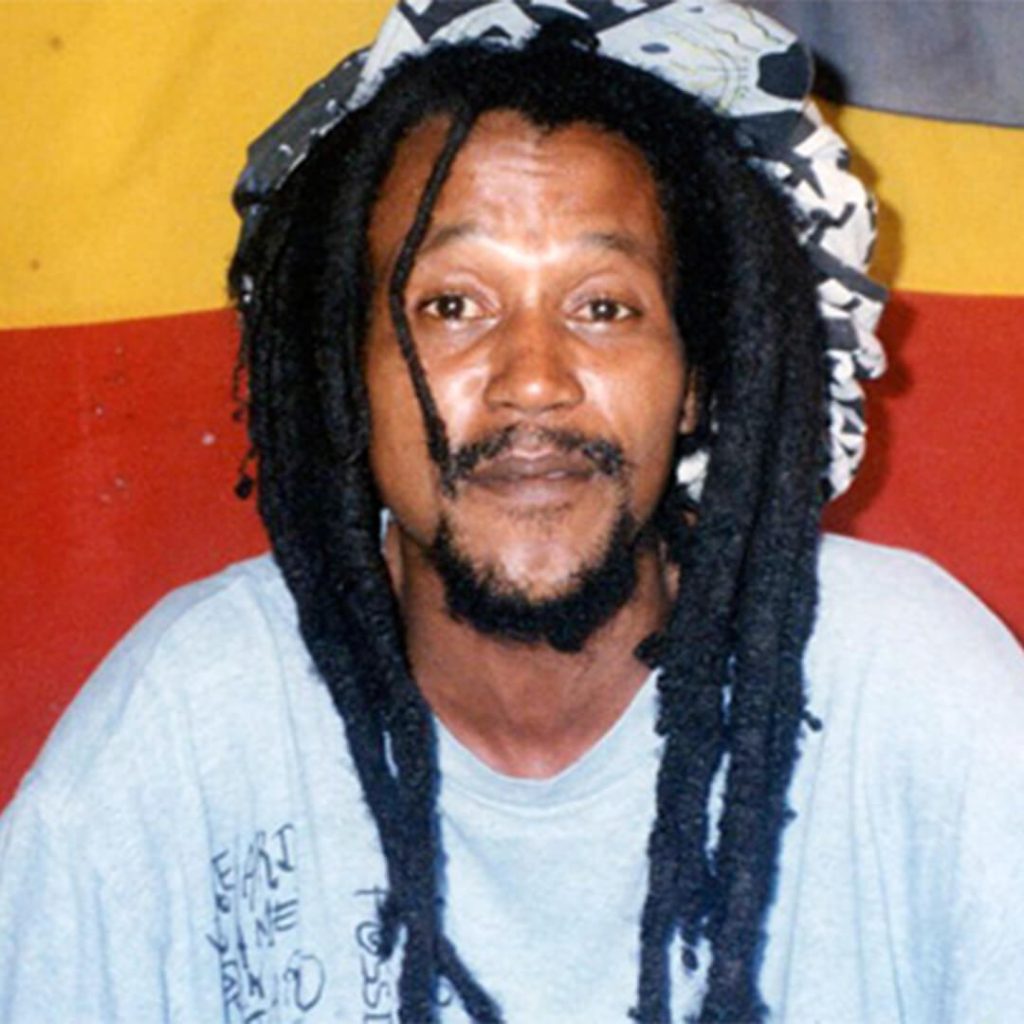
Kaya
Kaya, born Joseph Reginald Topize, is celebrated as the pioneer of *seggae*, a unique genre that fuses traditional Mauritian *sega* music with reggae. Growing up in a working-class neighborhood, Kaya used his music to voice the struggles, hopes, and aspirations of Mauritians, especially those from marginalized communities.
His songs addressed themes of social justice, poverty, and the search for identity, resonating deeply with the island’s multicultural society.Kaya rose to prominence in the 1980s and 1990s, blending the rhythms of sega with reggae’s distinctive beats, creating seggae as a new musical expression forMauritians. His iconic music not only introduced a powerful sound but also inspired a movement for equality and unity on the island. Kaya’s influence extendedbeyond music; he became a symbol of social change and a voice for the voiceless.
Tragically, Kaya’s life was cut short in 1999 under controversial circumstances while he was in police custody, sparking nationwide protests and an outcry for justice. Today, Kaya’s legacy lives on in Mauritius, with seggae remaining a vibrant genre, cherished as an expression of Mauritian identity, resilience, and the ongoing fight for social harmony. His music and message continue to inspire new generations on the island.
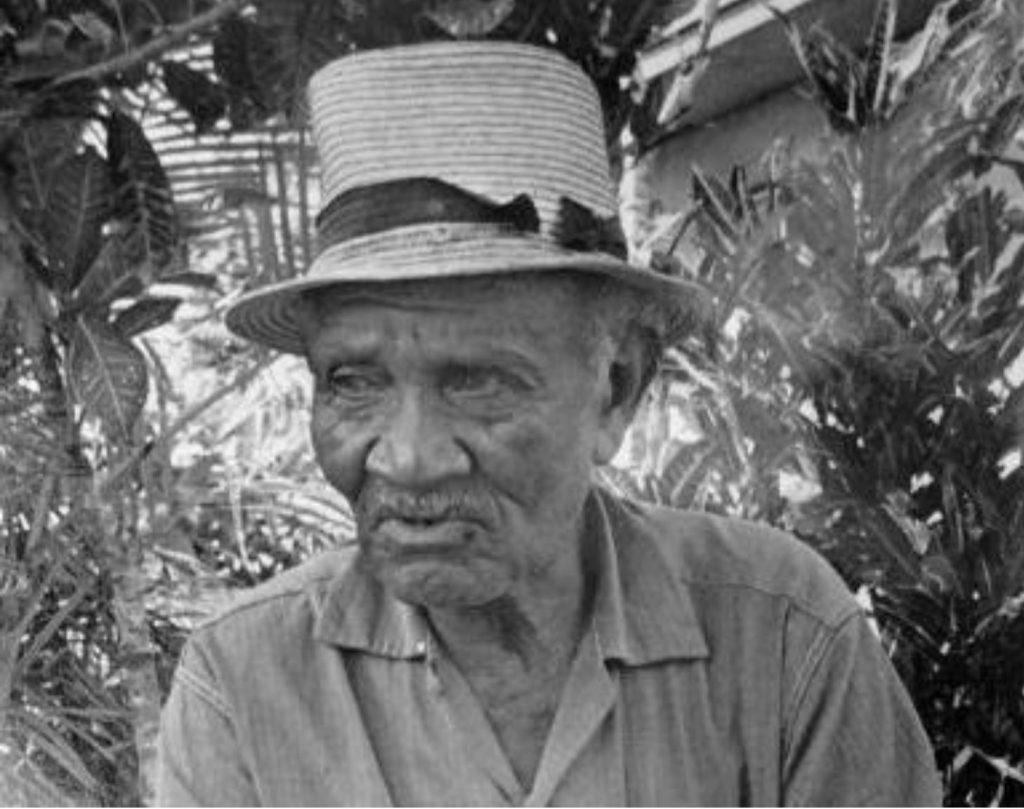
Ti Frere
*Ti Frer*, born Jean Alphonse Ravaton, is revered as one of the most influential sega artists in Mauritius. Known as the “Father of Sega,” Ti Frer popularized sega music in the mid-20th century, bringing the genre from small village gatherings to the forefront of Mauritian culture. His music, characterized by the rhythmic beats of the *ravanne* (a traditional Mauritian drum) and soulful lyrics, captured the essence of everyday Mauritian life, touching on themes of love, hardship, and resilience.
Born in 1900 in Moka, Ti Frer was deeply rooted in the Creole culture and heritage of Mauritius. His unique voice and poetic storytelling earned him immense respect, and he became a cultural icon, embodying the spirit of sega as a form of expression and resistance. During his career, Ti Frer recorded numerous sega classics that remain popular today, preserving an important part of Mauritian history and identity.
Through his music, Ti Frer played a key role in legitimizing sega as an art form and preserving it for future generations. His legacy lives on, inspiring sega artists across Mauritius who continue to honor his contributions to Mauritian culture.
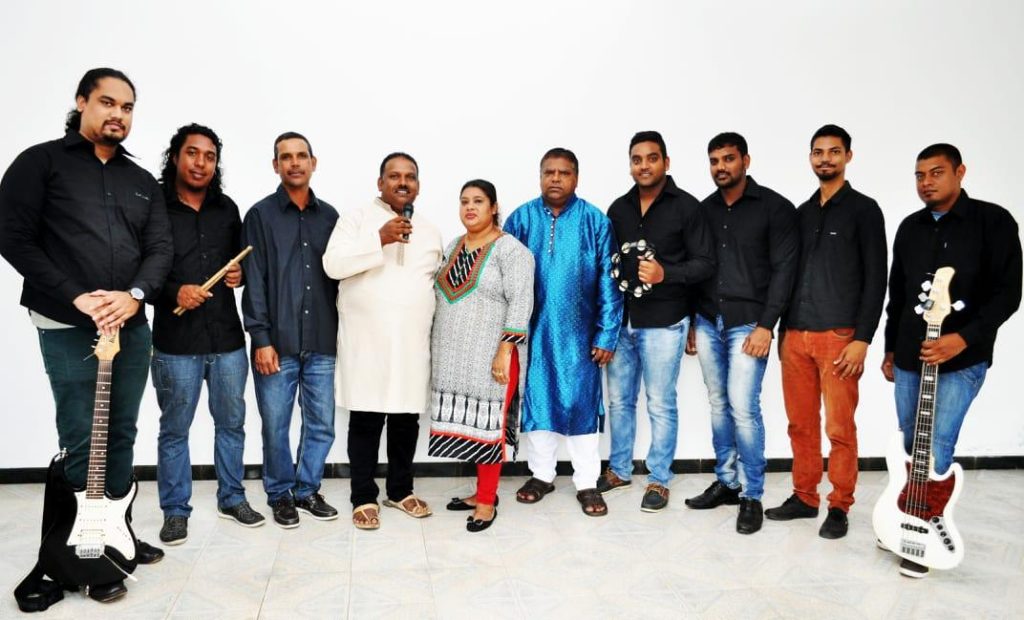
Bhojpuri Boys
The *Bhojpuri Boys* are a popular musical group in Mauritius known for bringing Bhojpuri music to mainstream audiences and celebrating the Indian heritage of many Mauritians. Formed in the 1980s, the group drew inspiration from the traditional folk music of North Indian laborers who came to Mauritius as indentured workers in the 19th century. Singing in the Bhojpuri language, their music blends traditional rhythms with contemporary sounds, creating lively songs that resonate with Mauritian audiences.
The Bhojpuri Boys’ lyrics capture the joys and challenges of everyday life, family, and cultural pride, making their music relatable to people of all backgrounds in Mauritius.Through their work, they have helped to revive interest in Bhojpuri culture and language, which remains an important part of the identity for many Indo-Mauritians.
By popularizing Bhojpuri music on the island, the Bhojpuri Boys have fostered a deeper appreciation for the diversity within Mauritian culture. Today, their music is celebrated across Mauritius, particularly during festivals and gatherings, where it brings people together and preserves the island’s rich multicultural heritage.

Jason Heerah
Jason Heerah is a renowned Mauritian singer and musician whose dynamic performances and soulful voice have captivated audiences both locally and internationally. Known for his powerful blend of sega, reggae, soul, and pop influences, Jason has become a prominent figure in the Mauritian music scene, bringing a fresh and contemporary sound to traditional genres.
Born into a family with deep musical roots, Jason Heerah grew up surrounded by music, which fueled his passion and talent from a young age. His career gained significant momentum after participating in *The X Factor Australia*, where his unique style and talent caught the attention of global audiences. Following this, Jason returned to Mauritius, where he continued to perform and record, infusing traditional Mauritian sounds with modern elements.
Through his work, Jason Heerah has helped to spotlight Mauritian music on the global stage, bridging cultural gaps and inspiring a new generation of musicians on the island. His contributions to music have not only enriched the Mauritian cultural landscape but also demonstrated the island’s vibrant artistic potential to the world.
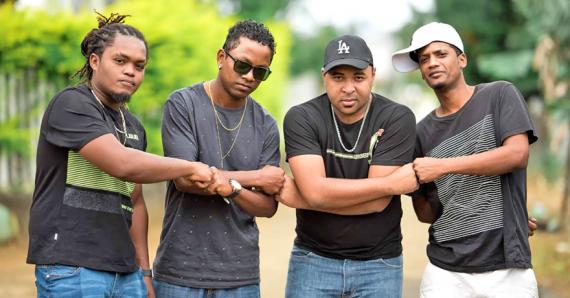
Soldat Kenz
*Soldat Kenz* is a celebrated Mauritian reggae group known for their thought-provoking lyrics and powerful rhythms. Formed in the 2000s, the group quickly gained popularity for using reggae as a platform to address social issues, including inequality, poverty, and the struggles of everyday Mauritians. Inspired by the reggae roots of artists like Bob Marley and the local influence of *seggae*—a fusion of sega and reggae pioneered by Kaya—Soldat Kenz has developed a unique sound that resonates
with Mauritian youth.
Their songs, often sung in Creole, reflect the realities of life in Mauritius and carry messages of resilience, unity, and hope. Soldat Kenz’s music has become a voice for those who feel marginalized, giving expression to the concerns and aspirations of Mauritian society. With their distinctive style, they have helped to further establish reggae and seggae as significant genres in Mauritius, blending global and local sounds to create music that speaks to the heart of the island.
Through their work, Soldat Kenz continues to inspire positive change, using music as a force to uplift and unify, making them a respected name in Mauritian music and
culture.

Alexandre Martin
Alexandre Martin, affectionately known as “Kiki,” is a celebrated Mauritian comedian and actor whose talent for humor and relatable storytelling has made him a beloved figure on the island. With a career that spans decades, Alexandre has brought laughter and joy to audiences through his performances on stage, television, and film. Known for his sharp wit, lively expressions, and the ability to connect with people from all walks of life, Kiki’s work reflects the everyday experiences and cultural nuances of Mauritius.
His comedic style often highlights the quirks and idiosyncrasies of Mauritian society, exploring themes like family dynamics, social issues, and the unique blend of languages and cultures on the island. His performances, in both Creole and French, have earned him a dedicated fan base, and his humor resonates deeply with
Mauritians.
Through his work, Alexandre Martin has contributed significantly to the development of Mauritian comedy and performing arts, inspiring new comedians and actors to embrace local culture and language in their work. Today, he remains a respected icon in the Mauritian entertainment scene, remembered for his role in making comedy a vital part of Mauritian cultural expression.
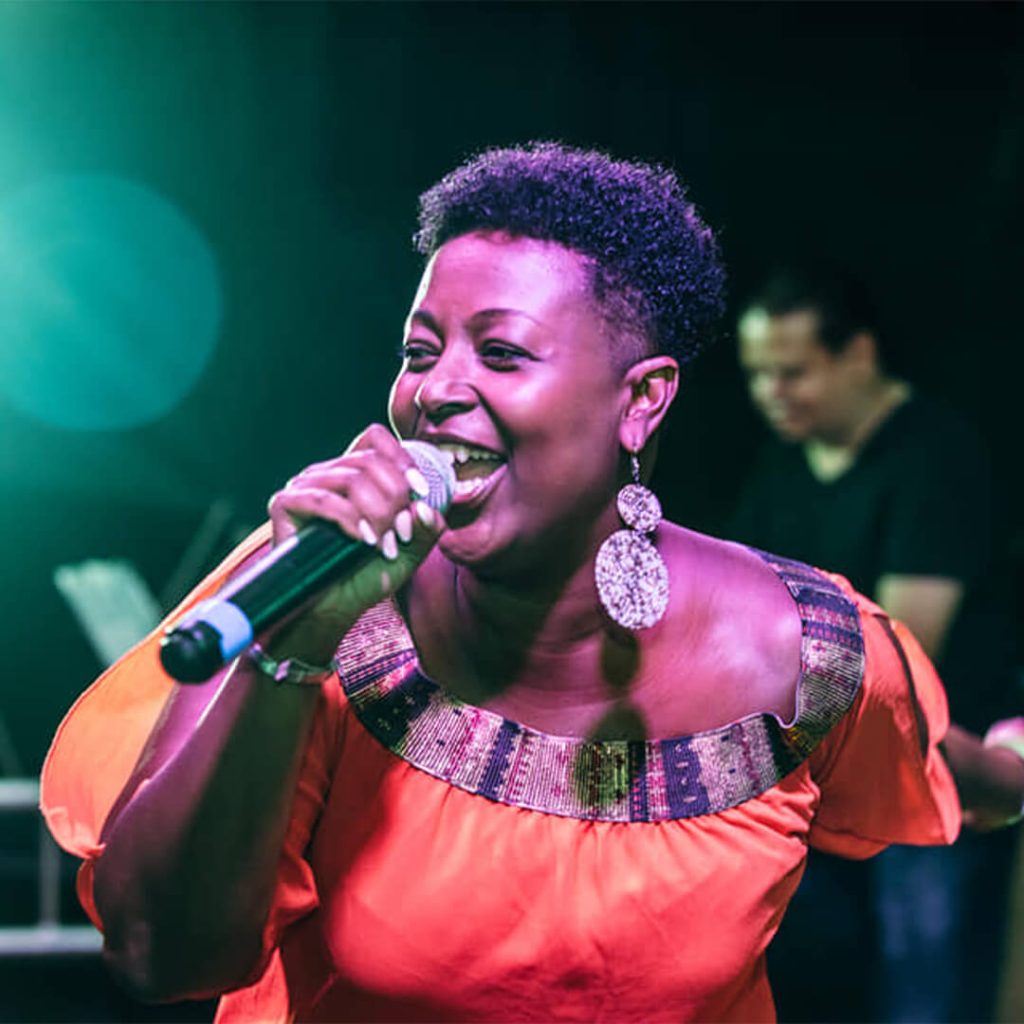
Linzy Bacbotte
Linzy Bacbotte is a celebrated Mauritian singer and songwriter, known for her contributions to *sega* and *reggae* music. With her powerful voice, expressive lyrics, and dynamic performances, Linzy has become an influential figure in Mauritian music, particularly for her ability to blend traditional sega rhythms with reggae and other modern influences. She emerged in the 1980s and quickly gained popularity, becoming known for songs that reflect the heart and soul of Mauritian culture.
Linzy’s music often explores themes of love, identity, and social issues, capturing the struggles and aspirations of Mauritians. Singing primarily in Creole, she brings authenticity and emotion to her work, making her music resonate deeply with her audience. Her commitment to preserving sega’s heritage while innovating with new sounds has earned her a special place in Mauritius’s music history.
Through her career, Linzy Bacbotte has not only popularized sega and reggae but has also inspired a new generation of musicians to embrace and celebrate Mauritian culture. Her legacy continues to shine, showcasing the island’s
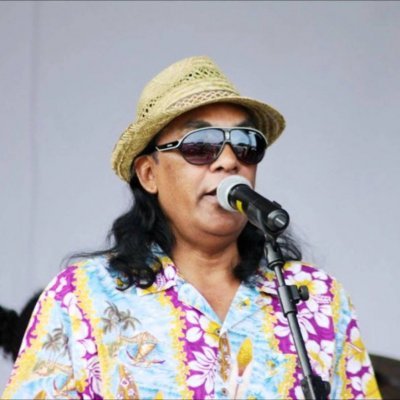
Claudio Veeraragoo
Claudio Veeraragoo is an iconic Mauritian sega artist known for his soulful voice and contributions to sega music, which have made him a household name on the island. Emerging in the 1970s, Claudio brought a fresh perspective to sega by infusing it with influences from Indian music, reflecting Mauritius’s multicultural heritage. His unique style, combining Creole lyrics with Indian-inspired melodies and rhythms, created a sound that resonated deeply with the Mauritian people.
Claudio’s songs often explore themes of love, loss, and everyday life, capturing the essence of Mauritian identity and cultural fusion. One of his most popular songs, “*Bhai Aboo*,” became an anthem of cultural pride and is cherished across generations.
Through his music, Claudio Veeraragoo has played a crucial role in popularizing sega music, both in Mauritius and among the diaspora. His work has helped preserve sega’s traditional roots while also showcasing its adaptability and relevance in modern times. Today, he is celebrated as a legend in Mauritian music, known for bridging cultural divides and bringing people together through the universal language of music.
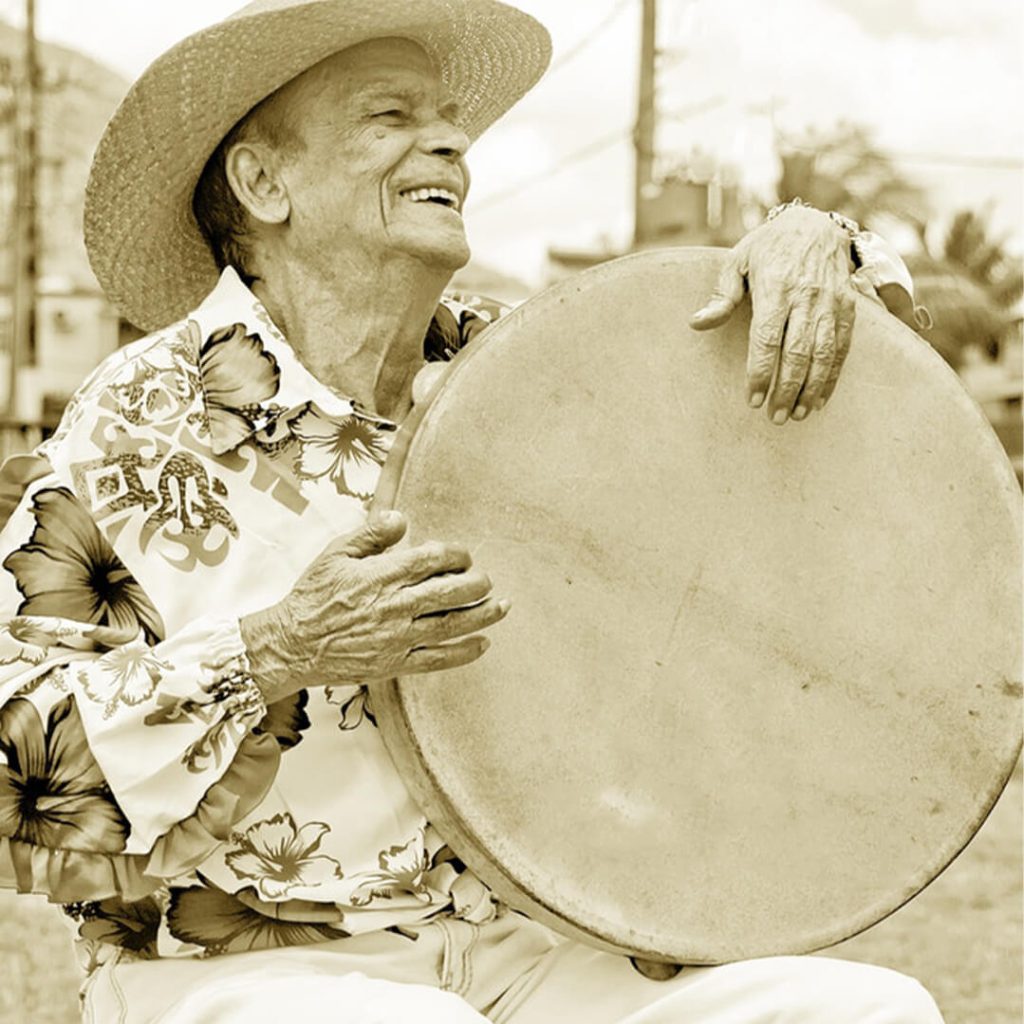
Serge Lebrasse
Serge Lebrasse was a pioneering Mauritian sega singer whose music became synonymous with the soul of the island. Born in the 1930s, he played a crucial role in popularizing sega music both in Mauritius and abroad. His deep, powerful voice and emotive style brought the traditional Creole genre to new audiences, earning him a place as one of the most influential figures in the history of Mauritian music.
Lebrasse’s career took off in the 1950s, and he quickly became a household name with his distinctive renditions of sega songs that often touched on themes of love, hardship, and everyday life. Known for his charismatic stage presence, Serge’s performances captivated audiences, and his contributions helped elevate sega from its roots in folk music to a celebrated art form.
Serge Lebrasse’s impact on Mauritian culture extends beyond his music. His work as a musician helped to preserve and promote the sega genre, ensuring that it would remain a key part of Mauritius’s identity. Today, he is remembered as a legend of Mauritian music, with his songs continuing to evoke nostalgia and pride for generations of Mauritians.
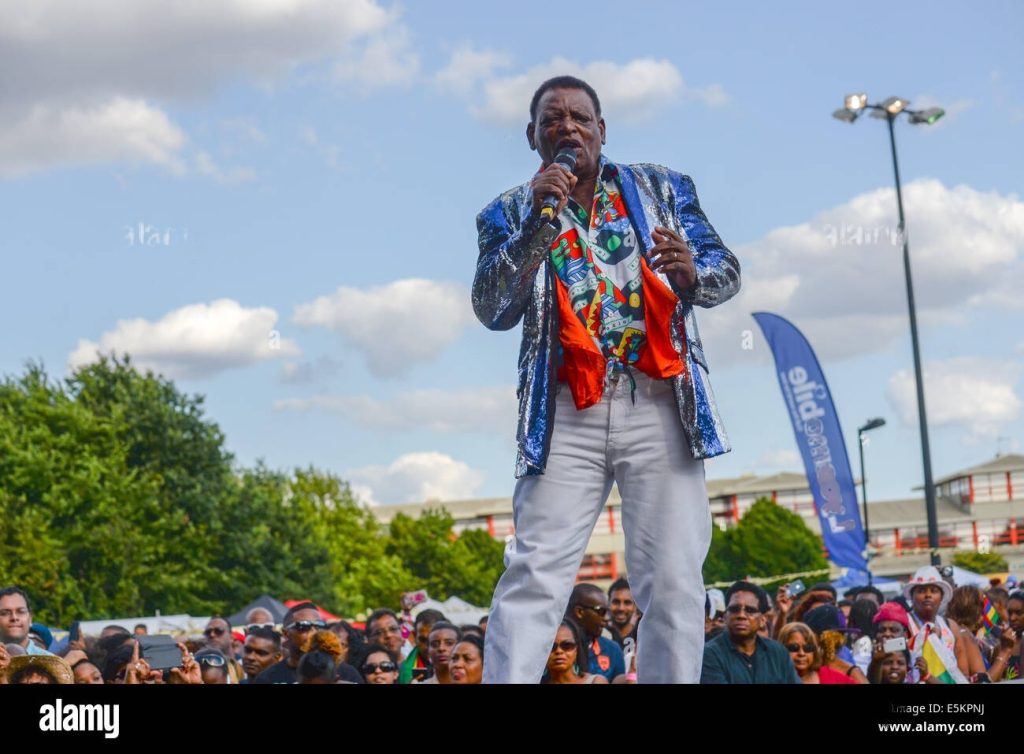
Jean-Claude Gaspard
Jean-Claude Gaspard is a respected Mauritian sega singer who has made significant contributions to the island’s music scene, particularly in the realm of traditional sega. With his soulful voice and distinctive style, Jean-Claude became a key figure in the preservation and popularization of sega music, which reflects the cultural diversity and rich heritage of Mauritius.
Active from the 1970s, Jean-Claude Gaspard gained recognition for his ability to blend the deep emotional resonance of sega with contemporary musical elements, creating a sound that appealed to both traditional and modern audiences. His songs, often sung in Creole, typically explore themes of love, social issues, and the struggles of everyday life, resonating with people from all walks of life on the island.
Through his work, Jean-Claude Gaspard has played a pivotal role in keeping sega music alive and relevant, ensuring its continued presence in Mauritian culture. His legacy is one of musical excellence and cultural pride, and he remains an iconic figure in the history of Mauritian music.
Source: https://www.google.com/imgres?q=jean%20claude%20gaspard&imgurl=https%3A%2F%2Fc8.alamy.com%2Fcomp%2FE5KPNJ%2Flondon-uk-3rd-august-2014-jean-claudegaspard-preforms-live-at-the-E5KPNJ.jpg&imgrefurl=https%3A%2F%2Fwww.alamy.com%2Fstock-photo%2Fclaude-alain.html%3Fpage%3D3&docid=LY52GH-1XJh5uM&tbnid=bV37v
7E3j1CphM&vet=12ahUKEwiqwcCgkYOIAxWh_7sIHTNqDx04ChAzegQIExAA..i&w=1300&h=957&hcb=2&itg=1&ved=2ahUKEwiqwcCgkYOIAxWh_7sIHTNqDx04ChAzegQIExAA
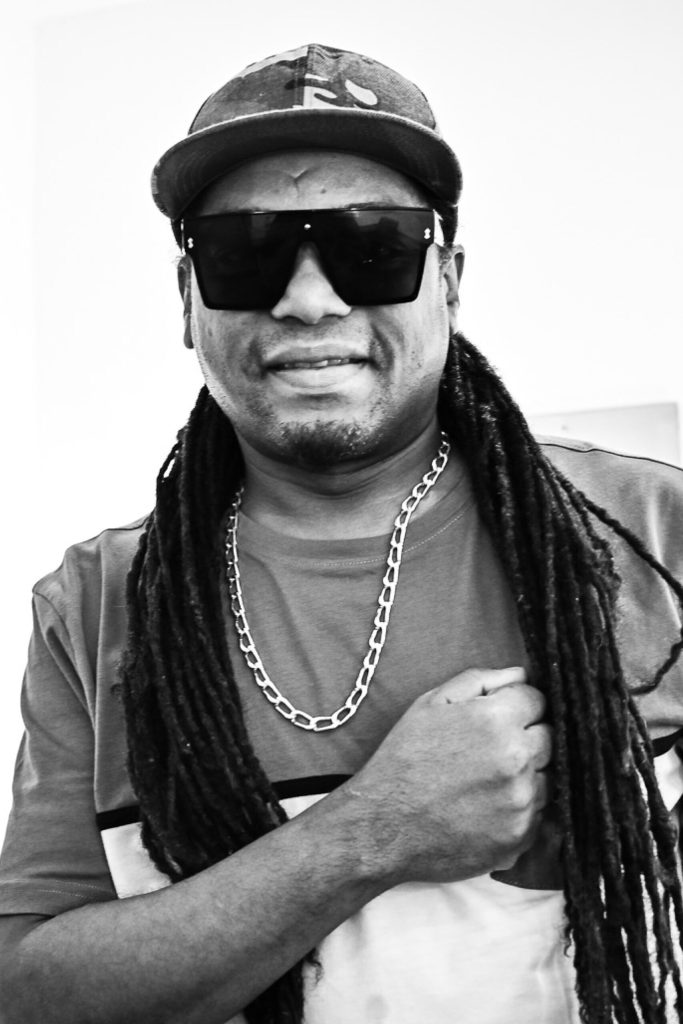
Blakkayo
Blakkayo is a renowned Mauritian seggae and reggae singer who has made a significant impact on the island’s music scene. Born in the late 20th century, Blakkayo is known for his unique fusion of traditional sega rhythms and reggae influences, creating a distinct sound that resonates deeply with both local and international audiences. His music blends socio-political commentary, personal experiences, and messages of unity, making his songs both thought-provoking and relatable.
Blakkayo’s rise to fame came in the 1990s, when he gained popularity for his powerful lyrics, soulful voice, and energetic stage presence. Singing primarily in Creole, his music addresses themes of social justice, equality, and cultural pride, which resonate with the diverse population of Mauritius. His songs, such as *”Té Pa Mwin”* and *”Kifer Pa Mwin”*, became anthems of resistance and empowerment for many.
Through his music, Blakkayo has helped to solidify seggae as an important genre in Mauritian culture, drawing on the island’s multicultural heritage and blending it with global reggae influences. His influence extends beyond music, as he continues to inspire a new generation of Mauritian artists and music lovers. Today, Blakkayo is celebrated as one of the leading voices in Mauritian music, known for his role in spreading messages of hope, unity, and resilience.
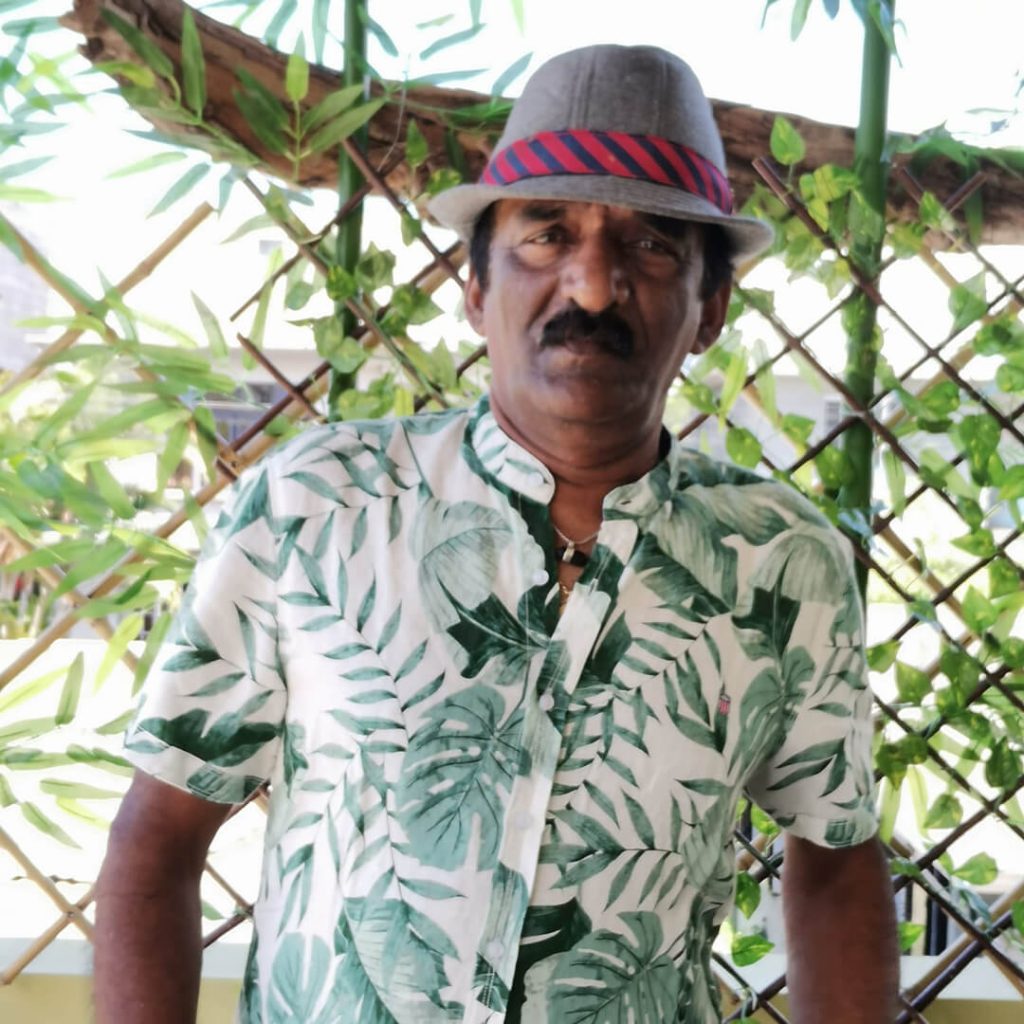
Grup Latanier
Grup Latanier is one of the most iconic sega groups in Mauritius, known for their energetic performances and contribution to preserving the traditional sega music genre. Formed in the 1970s, the group became widely recognized for their vibrant style and commitment to showcasing the cultural heritage of Mauritius through music. Their name, “Latanier,” which refers to a type of palm tree in Mauritius, symbolizes strength and rootedness in the island’s traditions.
Grup Latanier played a pivotal role in popularizing sega not just in Mauritius, but also internationally, particularly during the global rise of world music in the late 20th century. Their music blends traditional sega rhythms with contemporary influences, creating a unique sound that appeals to both older and younger generations. The group’s lively performances, characterized by the use of traditional instruments such as the *ravanne*, *triangle*, and *bobre*, brought the authenticity of sega to life.
The group’s lyrics often explore themes of love, life, and social issues, resonating with Mauritians across different cultural backgrounds. Grup Latanier’s contribution to Mauritian music continues to be celebrated, and they remain a symbol of the island’s rich musical heritage. Their work has left a lasting legacy in the evolution of sega music, ensuring its place in the cultural identity of Mauritius.

The Prophecy
The Prophecy is a prominent seggae and reggae group from Mauritius, known for their distinctive sound that blends traditional sega rhythms with reggae influences. Formed in 2015, the group quickly gained recognition for their powerful and socially-conscious lyrics, which often address issues such as social justice, freedom, and the struggles of the Mauritian people. Their music speaks to the multicultural essence of Mauritius, weaving together themes of unity, resistance, and empowerment.
The Prophecy’s blend of reggae’s uplifting messages with sega’s deep emotional resonance helped to establish them as a key player in the evolution of seggae music. Their fusion of these two genres, which embodies the island’s diverse cultural influences, made their music relatable to a wide audience, both in Mauritius and internationally.The band’s commitment to promoting local culture while addressing global issues earned them a dedicated following.
Through their music, The Prophecy continues to inspire and uplift the people of Mauritius, maintaining a legacy of creativity, social consciousness, and cultural pride. The group remains one of the most important voices in Mauritian music, pushing boundaries and ensuring the relevance of seggae in contemporary music.
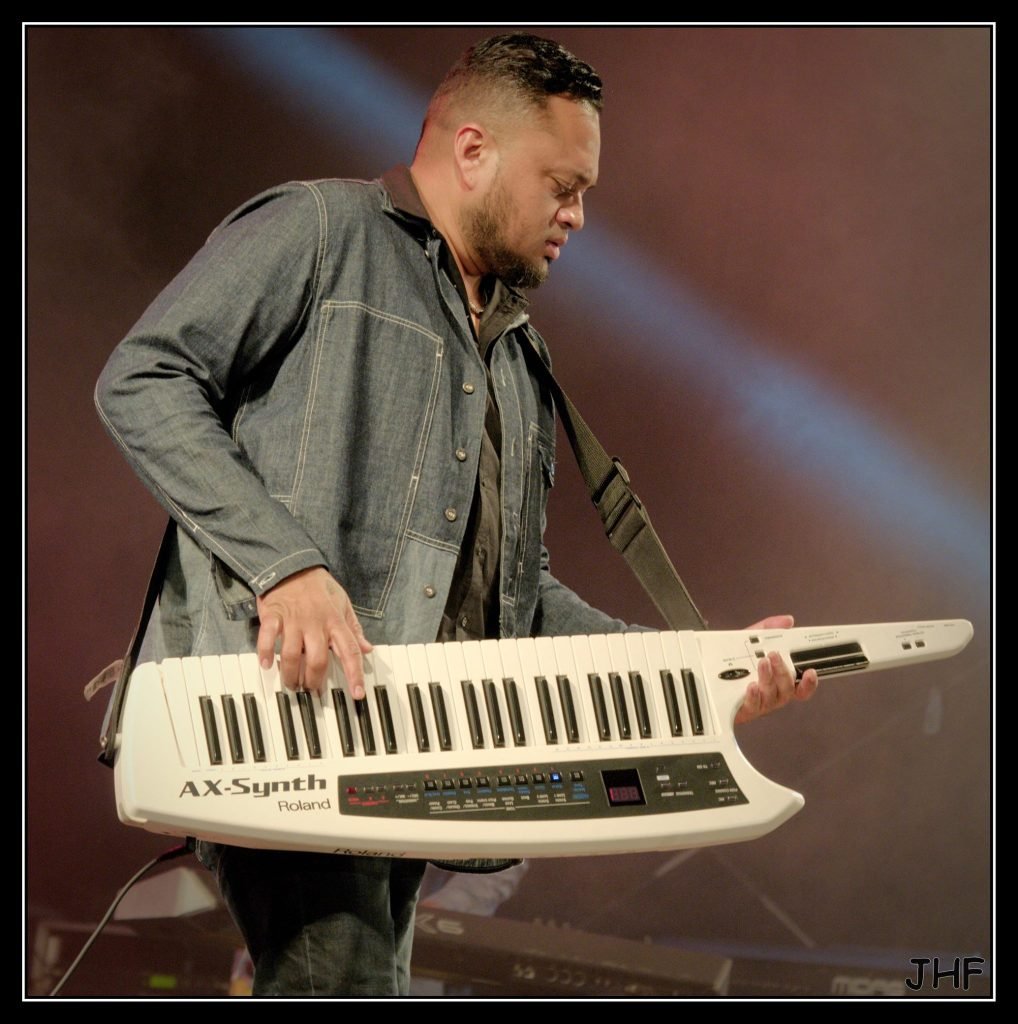
Alain Ramanisum
Alain Ramanisum is a celebrated Mauritian sega singer, renowned for his contributions to the popularization of sega music both in Mauritius and internationally. Known for his powerful voice and charismatic stage presence, Alain has become one of the most iconic figures in the island’s music scene. His music blends traditional sega rhythms with modern influences, making it accessible to a wide audience while still maintaining the authenticity of the genre.
Alain’s career began in the 1980s, and over the years, he has earned recognition for his ability to infuse deep emotion into his songs, often addressing themes of love, social issues, and the challenges of daily life in Mauritius. His hit songs, such as *”Dan Mo Lagon”* and *”Té Monn Manz”* reflect his mastery in capturing the heart and soul of Mauritian culture through music.
Through his long and successful career, Alain Ramanisum has helped elevate sega to new heights, contributing to its global recognition as a genre that embodies the spirit of Mauritius. He remains a beloved figure in the world of Mauritian music, known for his deep connection to his roots and his commitment to preserving and evolving sega for future generations.

Laura Beg
Laura Beg is a well-known Mauritian sega singer, celebrated for her powerful voice and significant contribution to the evolution of sega music. Her career, which began in the 1990s, has seen her become one of the most prominent female voices in the Mauritian music scene. Laura’s music blends the traditional rhythms of sega with modern influences, allowing her to capture the hearts of audiences both in Mauritius and abroad.
Known for her emotive performances, Laura Beg’s songs often explore themes of love, personal struggles, and the vibrant cultural identity of Mauritius. She has become a key figure in showcasing the beauty and authenticity of Creole music while also embracing contemporary sounds to appeal to new generations.
Through her work, Laura has played an important role in promoting sega, not just as a genre but as an expression of Mauritian culture and heritage. Today, she remains a beloved artist, inspiring many with her talent and passion for music. Her contributions to the Mauritian music landscape continue to be celebrated, ensuring her place as one of the island’s musical legends.
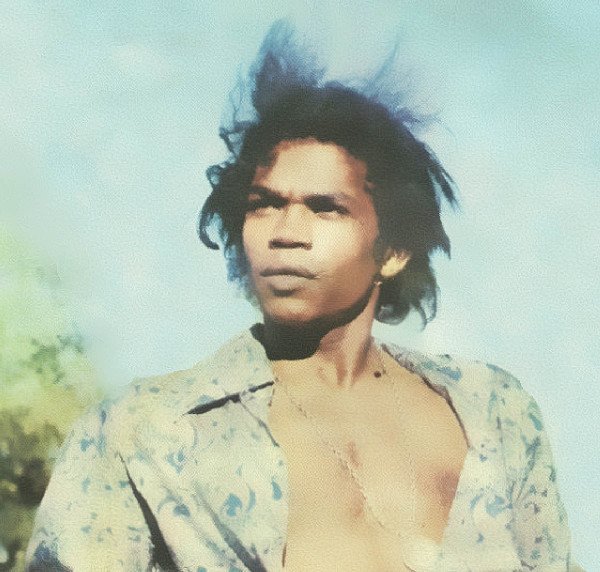
Coulouce
Coulouce is a celebrated Mauritian sega singer known for his distinctive voice and vibrant contributions to the island’s music scene. Rising to prominence in the 1980s, Coulouce became a key figure in the sega genre, using his talent to elevate traditional Mauritian music while staying true to its roots. His music, infused with the rhythmic sounds of sega, captures the soul of Mauritius and resonates deeply with both local and international audiences.
Coulouce’s songs often reflect the everyday experiences of Mauritians, touching on themes of love, social struggles, and the island’s cultural diversity. His ability to convey emotion through his music has made him a beloved figure in the Mauritian music community. Known for his charismatic stage presence, Coulouce’s performances are celebrated for their energy and authenticity.
Through his contributions, Coulouce has helped to preserve and promote sega as an essential part of Mauritian cultural identity. Today, he remains a respected and influential artist, remembered for his significant impact on the evolution of sega music and his role in connecting Mauritian traditions with modern musical expressions.
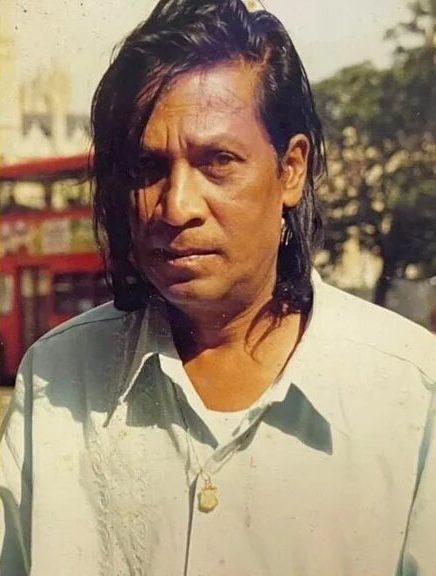
Sona Noyan
Sona Noyan is a well-known Bhojpuri singer from Mauritius, recognized for her contributions to the popularization of Bhojpuri music in the island’s multicultural landscape. Hailing from a Mauritian Indian heritage, Sona’s music blends traditional Bhojpuri rhythms with contemporary styles, making her one of the leading voices in the Bhojpuri
music scene.
Her powerful and melodious voice has earned her a strong following, particularly within the Indo-Mauritian community, where Bhojpuri music holds a special cultural significance. Through her songs, Sona Noyan has captured the essence of Mauritian life, touching on themes of love, family, and social experiences. She has become a key figure in keeping the Bhojpuri language and culture alive, contributing to the rich musical diversity of Mauritius.
Sona’s impact extends beyond her musical talent; she has helped to bridge the gap between different cultural groups in Mauritius by making Bhojpuri music more accessible and appreciated by a wider audience. Today, she remains a beloved figure in Mauritian music, known for her role in promoting Bhojpuri as an integral part of the island’s musical heritage.
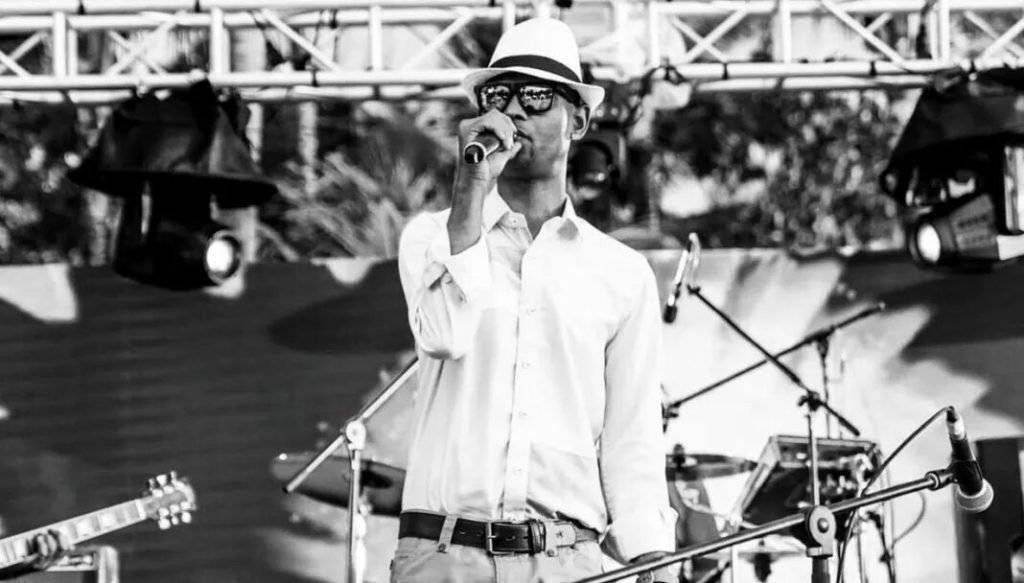
Lin
Lin, a well-known Mauritian sega, seggae, and reggae singer, has left a lasting mark on the island’s music scene with his soulful voice and impactful lyrics. Lin’s music is a blend of sega, the traditional music of Mauritius, and reggae, which he infuses with local rhythms and a powerful sense of social consciousness. His unique style has resonated deeply with Mauritians, making him a beloved figure across generations.
Emerging in the late 20th century, Lin became popular for his songs that tackle social issues, love, and everyday life, connecting with people through his heartfelt storytelling and rhythmic melodies. His music is often characterized by a call for unity, peace, and pride in Mauritian culture, and he is respected for using his platform to address important themes relevant to the island’s diverse community.
Through his contributions, Lin has helped to shape and modernize the Mauritian music landscape, especially in the genres of sega and seggae. His legacy continues to influence new generations of Mauritian artists, and his music remains a staple, celebrating both the challenges and beauty of life in Mauritius.

Ras Natty Baby
Ras Natty Baby is a legendary figure in Mauritian music, recognized as one of the pioneers of seggae, a unique genre that fuses sega and reggae. Known for his deep, soulful voice and socially conscious lyrics, Ras Natty Baby used his music to address issues such as social justice, poverty, and unity in Mauritius. Alongside Kaya, the founding father of seggae, Ras Natty Baby played a crucial role in popularizing this genre, which has since become a powerful expression of Mauritian identity and resilience.
Ras Natty Baby’s songs often resonate with messages of peace, love, and resistance, reflecting the struggles and aspirations of the Mauritian people. His commitment to social change through music earned him a devoted following, and his performances were celebrated for their raw emotion and authenticity.
Through his artistry, Ras Natty Baby has left a profound impact on Mauritian culture, and his legacy continues to inspire new generations of musicians in Mauritius and beyond. Today, he remains a respected icon in the world of seggae, remembered for his contributions to the growth of this genre and his influence on Mauritian music
and society.
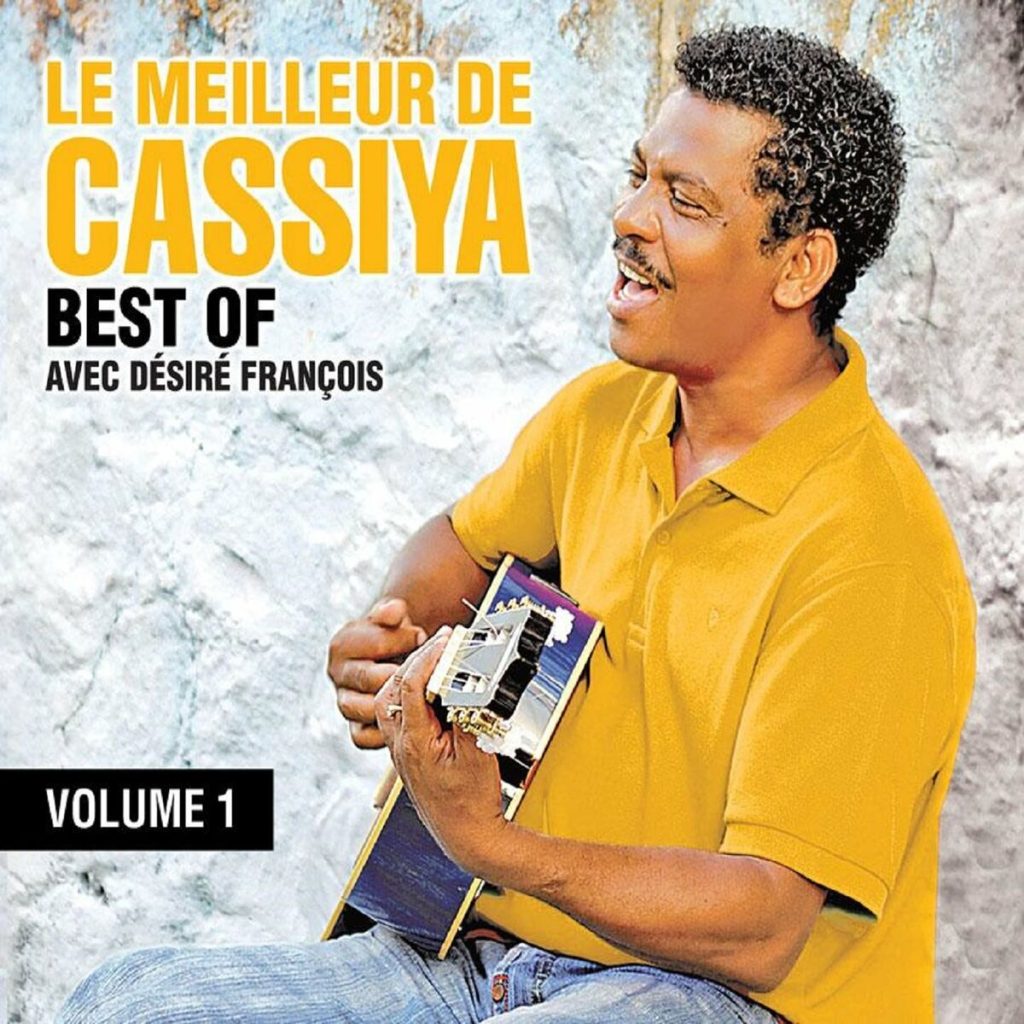
Cassiya
Cassiya is one of Mauritius’s most iconic sega groups, renowned for their infectious rhythms and heartfelt lyrics that capture the essence of Mauritian life. Formed in the early 1990s, Cassiya quickly rose to popularity with songs that explore themes of love, social issues, and daily experiences on the island. Their music is deeply rooted in sega, the traditional music of Mauritius, and they are known for blending contemporary styles with classic sega beats, appealing to audiences both young and old.
Led by Alain Ramanisum and other talented musicians, Cassiya has produced several hits that have become staples in Mauritian culture, including *”Mo Kapav Dir To”* and *”Leker Maron.”* Their performances are celebrated for their energy and the genuine connection they forge with their audience, making Cassiya one of the most beloved musical groups in the country.
Cassiya’s influence extends beyond music; they have played a vital role in preserving and modernizing sega, ensuring it remains relevant across generations. Today, they
are celebrated as cultural icons, with a legacy that continues to inspire pride in Mauritian heritage and unity through music.
Source:https://www.google.com/imgres?q=Cassiya&imgurl=https%3A%2F%2Fcdns-images.dzcdn.
net%2Fimages%2Fcover%2Fdd6ffce98875bb28b2cac43e096a5348%2F1900x1900-000000-80-0-0.jpg&imgrefurl=https%3A%2F%2Fwww.
deezer.com%2Fen%2Fartist%2F57000&docid=0k7vJ4fKxgN9oM&tbnid=Dt9ttyMUHA9dcM&vet=12ahUKEwjwxc_BmYOIAxWI_
rsIHfQ9OwoQM3oECGkQAA..i&w=1200&h=1200&hcb=2&ved=2ahUKEwjwxc_BmYOIAxWI_rsIHfQ9OwoQM3oECGkQAA
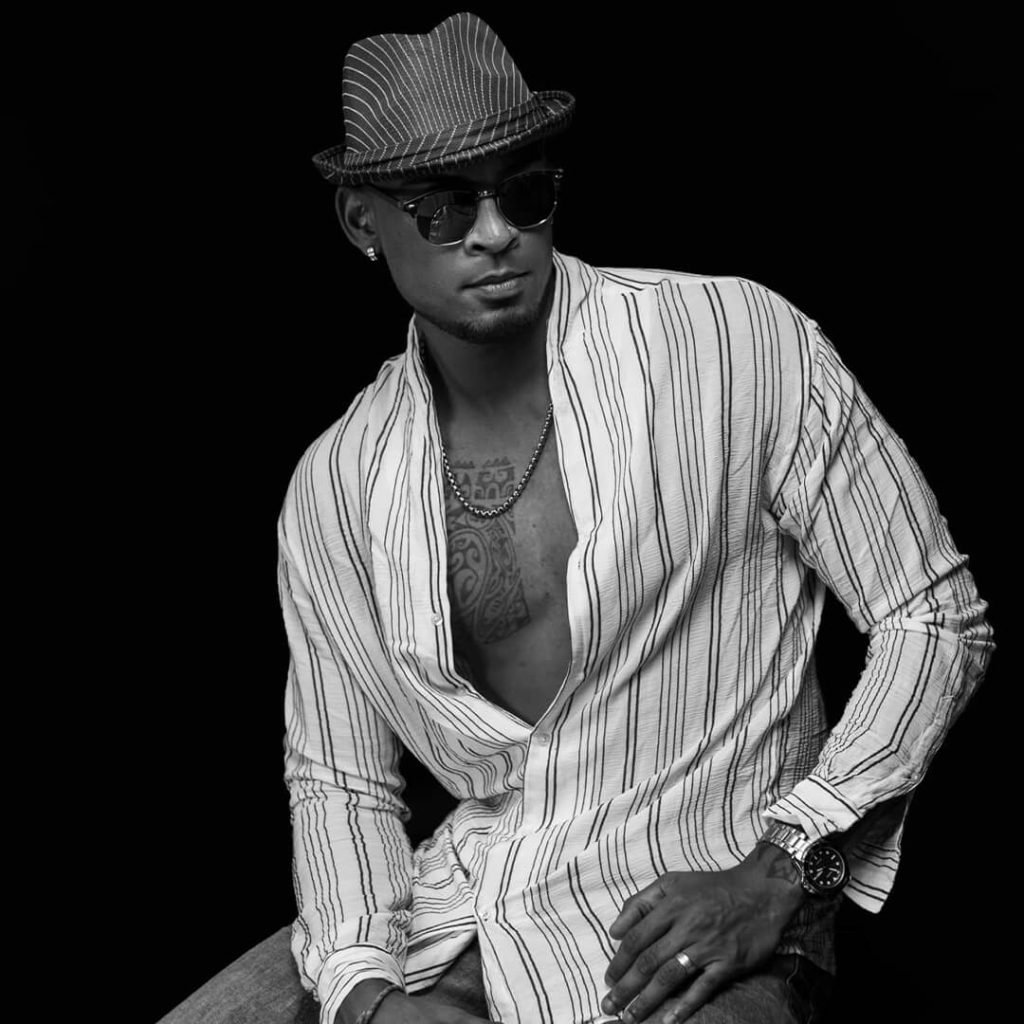
Mr Love
Mr. Love, a celebrated Mauritian sega and love song artist, is renowned for his smooth vocals and emotive style that beautifully captures themes of romance, heartbreak, and everyday life in Mauritius. His music blends traditional sega rhythms with a focus on love and relationships, resonating deeply with audiences who connect with his sincere lyrics and soulful melodies.
Known for hits like *”Amour Fatal”* and *”Tantine,”* Mr. Love has earned a loyal following and become a key figure in the Mauritian music scene. His songs often convey the nuances of Mauritian love stories, and his passionate performances have made him one of the island’s most beloved artists in the sega genre.
Mr. Love’s influence extends beyond music, as he has helped keep sega fresh and modern, drawing younger listeners to the genre while preserving its rich cultural roots. Today, he is celebrated as a prominent figure in Mauritian sega, representing the island’s unique musical heritage and the universal language of love.

Sky To Be
Sky To Be is a popular Mauritian sega, seggae, and reggae singer known for his energetic performances and unique fusion of styles. With a voice that blends seamlessly across genres, Sky To Be has created a sound that captures the vibrant culture and rhythm of Mauritius. His music addresses a range of topics, from social issues and everyday struggles to love and joy, making him a relatable and beloved figure among Mauritian audiences.
Sky To Be rose to fame with hits like *”Mo Pa Ena Love”* and *”Anita,”* which quickly became local favorites. His ability to mix traditional sega with modern reggae and seggae has helped redefine these genres, bringing a fresh, youthful energy to the Mauritian music scene. Known for his catchy beats and engaging stage presence, he continues to attract fans from all walks of life.
As a contemporary artist, Sky To Be plays an essential role in the evolution of Mauritian music, inspiring younger generations and keeping the island’s musical traditions alive and relevant. His impact on the local music industry is significant, and he is celebrated for bringing a new, dynamic sound to Mauritian sega and seggae.
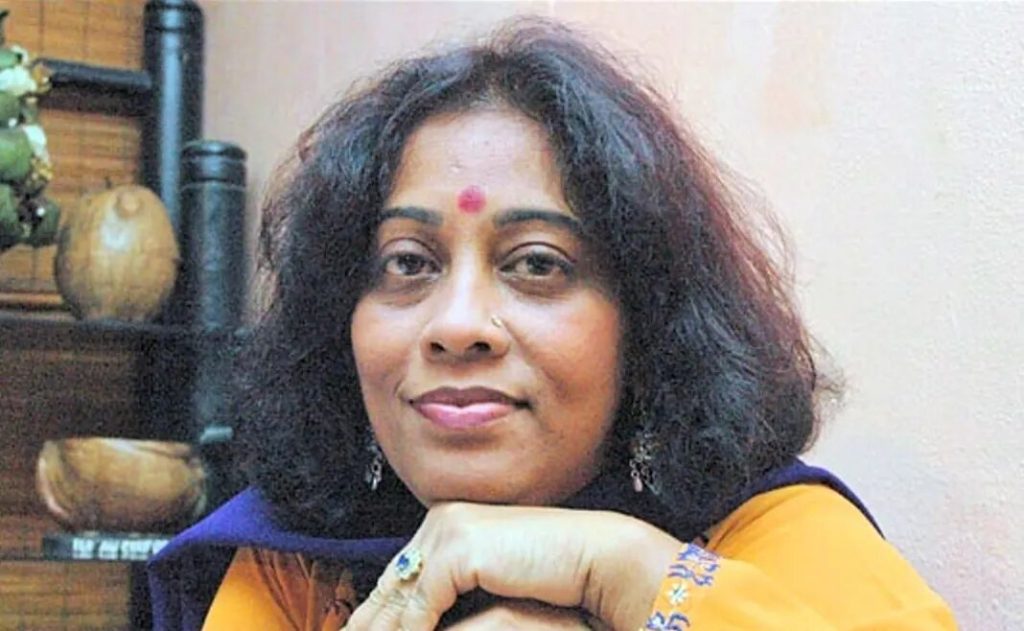
Meera Mohun
Meera Mohun is a renowned Mauritian sega and Bhojpuri singer, celebrated for her versatility and contributions to preserving and promoting traditional Mauritian and Bhojpuri music. With her unique voice and dynamic performances, Meera has become an influential figure, particularly within the Mauritian Bhojpuri community, where her music resonates deeply.
Her songs often reflect themes of love, cultural identity, and the beauty of Mauritian heritage, capturing the spirit of both sega and Bhojpuri traditions. Meera Mohun has skillfully blended these genres, highlighting the cultural diversity of Mauritius and appealing to audiences across the island.
Through her dedication, Meera has played a pivotal role in keeping Bhojpuri music alive in Mauritius while bridging it with sega, the national music. Her work is celebrated for not only entertaining but also for fostering pride in Mauritius’s multicultural roots. Meera Mohun remains a beloved figure, inspiring both new artists and audiences with her rich musical contributions.

Jane Constance
Jane Constance is a gifted Mauritian singer who gained international recognition for her powerful voice and inspiring story. Blind from birth, Jane defied challenges to pursue her passion for music, and her incredible talent quickly made her a beloved figure both in Mauritius and beyond. She rose to fame after winning the French singing competition *The Voice Kids* in 2015, captivating audiences with her emotional performances and remarkable vocal range.
Jane’s music often carries messages of hope, resilience, and unity, reflecting her own journey and her deep connection to Mauritian culture. As a UNESCO Artist for Peace,she also advocates for inclusivity and equal opportunities for people with disabilities. Her success has not only brought pride to Mauritius but has also inspired countlessindividuals worldwide.
Jane Constance continues to be an influential voice, using her platform to promote positive change and celebrate the richness of Mauritian culture. Her story is a testament to the power of perseverance and the universal language of music.


